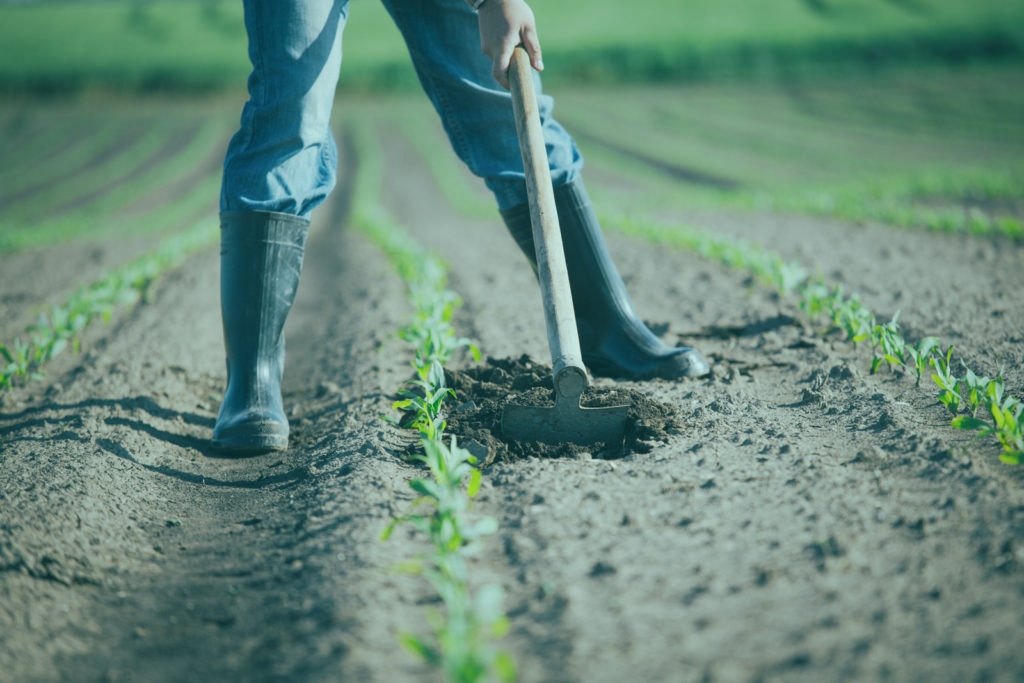Why agriculture matters
William Lionel Buckland was a highly successful pastoralist who we know he had a great love of the land and agriculture – his suggestion that Trustees “give preference to agriculture and related pursuits” has been instrumental in developing our Agriculture Program.
Much has changed for the sector in Victoria and for farming communities since William Buckland’s death in 1964. Successful farming has required our farmers to innovate, while Australian farming communities have developed special kind of toughness and capacity to absorb change, seize opportunities to improve living standards, and to transform livelihood systems while sustaining the natural resource base.

Advancing agriculture priority outcomes
1. Seeding new approaches
Supporting farming expertise, entrepreneurship and leadership
2. Scaling innovation and sustainability
Supporting the trialling and adoption of innovative solutions to build sustainable agricultural production
What we are looking for
- Programs that support farmers to adapt and lead
- Innovative farming approaches that increase sustainable agricultural production
- Social entrepreneurship, particularly around Indigenous and First Australian native food farming practice
Want to apply for a grant?
Step 1:
Check your eligibility
Before you consider applying for an education grant, confirm that you meet these criteria:
- You operate in Victoria and will use the grant for the benefit of Victorians
- While we don’t need Deductible Gift Recipient (DGR) status for a grant, preference is expressed for organisations that are registered with the Australian Charities and Not-for-profits Commission (ACNC)
- You have an Australian Business Number (ABN)
- Your initiative or project aligns with at least one of the education granting priorities.
Step 2:
Drop us a line
Send the WBF granting team a quick email that outlines how your application meets the eligibility criteria and which of the Foundation’s agriculture priority outcomes it meets. Please ensure you include your contact details.
We will call you back to discuss and provide a link to where you can submit your expression of interest.
Step 3:
Prepare and submit your expression of interest by 18 September 2023.
Since we receive many submissions, your expression of interest does not need to include all the details.
We want to see what the need and context are for a project or program as well as the vision for its impact. We allocate a month for this step.
Your expression of interest will be considered by the Trustees, and if successful you will be invited to submit a full application. At this stage we will provide feedback for any more information we need or want to understand better.
Step 4:
Prepare and submit your full application by 12 February 2024.
This application is where we want to see the detail of the project including how your organisation is governed, budget breakdowns, timelines and expected outcomes, as well as how you plan to measure, track and assess the success of your project. We also want to see how lived experience is built into the design delivery and evaluation of your approach.
Don’t worry – we give you one month for this step and are happy to answer any questions you have along the way.
Your full application will be considered by the Trustees, and you will be advised of the outcome by email shortly after the meeting. If you’re unsuccessful we will provide specific feedback to help with future applications. If you’re successful, we will be in contact with a grant letter requesting an invoice and banking details, which we need to process a payment.
If you have a multi-year grant from us, we will need to see an acquittal and invoice annually to release payment. We aim to make payments within a month of notifying grantees and future year grants will be released after discussion and review of acquittal form through smartygrants.
We’re happy to hear from you whenever you have something you want us to know and of course if there are any significant changes to the project
FAQs
We are committed to evidence-led initiatives that lead to better outcomes for Victorian children and young people, particularly if they face barriers to engagement. We believe that as a philanthropic funder we best support children experiencing barriers to engagement by funding organisations to prove, scale and grow initiatives and, when established, exiting our relationships. We want to back initiatives that can provide impact at scale with the right support, rather than funding the ongoing delivery of programmatic responses.
Specifically, we fund initiatives in these seven ways:
- Collaborating for greater impact
- Building long-term partnerships
- Supporting capacity building
- Scaling up proven models
- Supporting regional communities to thrive
- Addressing the challenge of youth mental health
- Supporting grass roots community activities
The Foundation has committed to measuring, tracking and reporting publicly on our progress on:
- the UN Sustainable Development Goals
- diversity lenses: gender lens in project design and reporting
- specific project locations: urban, outer urban or remote
- beneficiary groups: Aboriginal & Torres Strait Islander people, people seeking asylum, culturally and linguistically diverse, people and communities experiencing intergenerational poverty and disadvantage.
In light of our existing commitments, we are not accepting applications for new grants at this time.
We will launch our refocused strategy, with clear guidance for charities in 2025.
